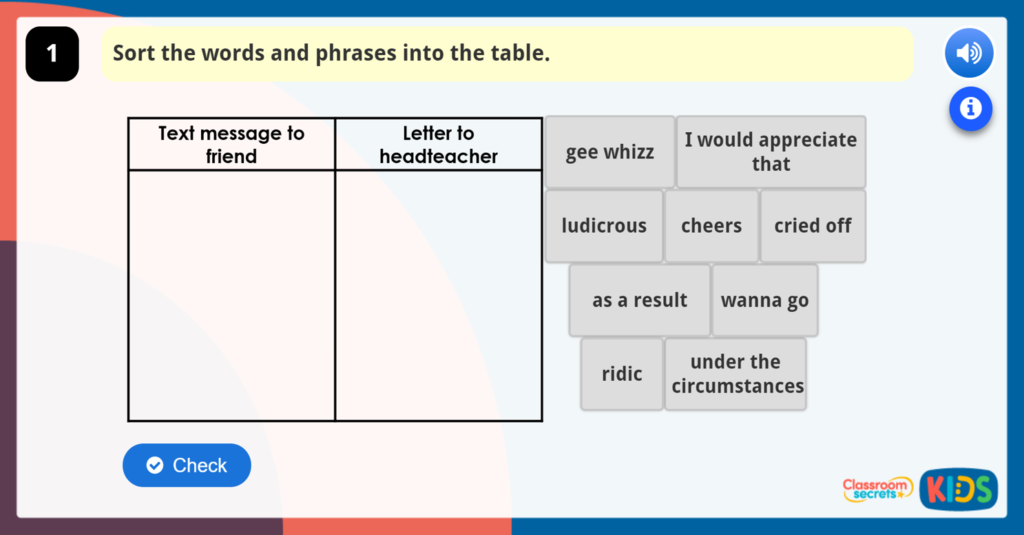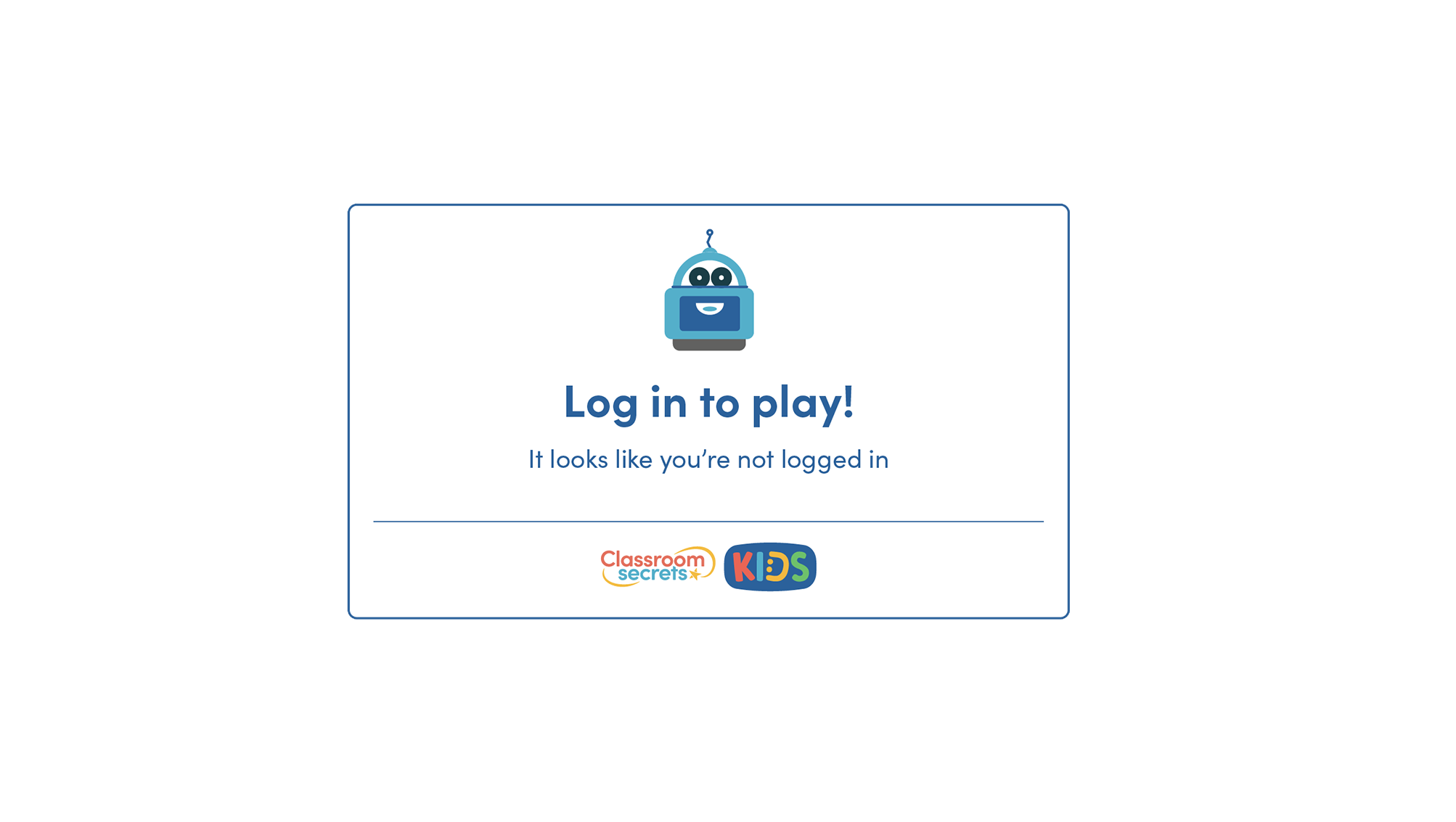Year 6 Recognising Formal and Informal Writing
Teacher Specific Information
This Year 6 Recognising Formal and Informal Writing activity checks pupils’ understanding of formal and informal vocabulary and language. Children will sort words and phrases into a table, select words or phrases in text that would not be used formally, match formal sentences with their informal equivalents, select the formal sentences in a list, and answer true or false as to whether a passage of writing is informal.
This activity is linked to the Classroom Secrets Year 6 GPS scheme of work.
Questions in this activity are based on the content in Spring Block 3 Step 1 on the Classroom Secrets website, where you can find more resources.
National Curriculum Objectives:
English Year 6: (6G7.4) Recognising vocabulary and structures that are appropriate for formal speech and writing, including subjunctive forms
English Year 6: (6G7.2) The difference between vocabulary typical of informal speech and vocabulary appropriate for formal speech and writing [for example, find out – discover; ask for – request; go in – enter]
English Year 6: (6G7.3) The difference between structures typical of informal speech and structures appropriate for formal speech and writing [for example, the use of question tags: He’s your friend, isn’t he?, or the use of subjunctive forms such as If I were or Were they to come in some very formal writing and speech]








